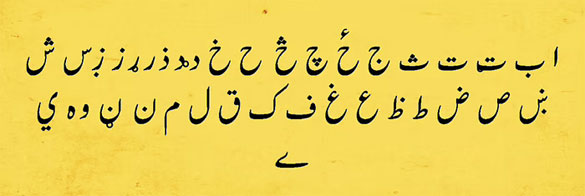Urdu Speaking Refugees Live With the Stigma of Being Supporters of Pakistan
Main Points:
1. Urdu poets and writers of refugee camps have kept Urdu alive.
2. Urdu poets have to live in 8×8 feet rooms with family.
3. Mushairas and Qawwalis are regularly held in the camps.
4. Bangla writers like Asad Chowdhury and Shamsul Haque have supported Urdu writers.
-----
New Age Islam Staff Writer
31 July 2021

With the formation of Bangladesh in 1971, Urdu language at once became the language of the 'collaborators'. Known as 'Biharis', the Urdu speaking Muslims of Bangladesh have since been living with the stigma of supporting Pakistani aggression against the Bengali speaking majority community of Bangladesh. These Urdu speaking Muslims who are about 2,50,000 live in 116 settlements across Bangladesh. The largest Bihari refugee camp called Geneva Camp is in Dhaka where about 100,000 Biharis live in 8×8 feet homes.
After the independence of Bangladesh, Urdu became an outsider here. Urdu schools were closed, Urdu as an optional subject in higher studies was dropped and Urdu journals and newspapers had to be closed. In this situation, it was very difficult for the Urdu speaking community to live with their identity in Bangladesh. However, as the times passed, wounds started healing and the hostility of the majority community receded and liberal Bangla writers like Asad Chowdhury helped in bridging the gap by translating the Urdu poems of Urdu writers into Bangla.
Since the mother tongue of these inmates is Urdu, these camps are also the centres of Urdu language and literature in Bangladesh. Urdu literary and cultural activities are held regularly here. Most of the Urdu poets, story writers and lyricists of Urdu of Bangladesh live in these camps and have kept their language and cultural heritage alive in a hostile country.
Mushairas, programmes of Qawwali and Tarannum (Musical programmes) are held in these camps in which singers and poets from the camps across the country participate. Shamim Zamanvi, Qasim Anis, Qamruzzaman Talib Kabir, Arman Shamsi, Enayatullah Siddiqui, Jameel Akhtar, Syed Afzal Hussain, Syed Fatema Islam Rosy, Anwarul Haque, Nazar Neyazi, Syed Faiyaz Hussain, Riaz Rafique, Mamoon Siddiqi, Shawkat Noor, Salahuddin Amer, Qurban Ali are some of the poets who are the voices and representatives of Urdu language and literature in Bangladesh. The themes of their poetry are the muserable life of refugee camps, inequality and the pain of being away from one's homeland apart from the common joys and sorrows of life.
There are some literary and cultural organisations like Bazm-e-Iqbal, Halqa-e-Ahbab and Bangla-Urdu Sahitya Foundation. The latter works as a bridge between Urdu and Bangla literature. It publishes translations of Urdu poms into Bangla. It also publishes a magazine called Awaz. The Bangla writed Asad Chowdhury has been playing an important role in patronising Urdu language and literature in Bangladesh.
Asad Chowdhury, ex-Director of Bangla Academy also published an anthology of translations of 100 Urdu poems titled 'Barir Kachhe Arshinagar'.
Urdu literary magazines like Khayal, Paigham and Mahawl have been published from time to time.
Shamim Zamanwi who is originally from Uttar Pradesh in India is very active and is the Vice President of Bangla-Urdu Sahitya Foundation.
The partition took place due to the political ambitions of some politicians but it was given the colour of a linguistic conflict. In this conflict, Urdu became the victim.
Though Urdu is taught in Dhaka University and Rajshahi University in Bangladesh, there are no prospects of development of Urdu language in the country as the language has no state patronage and no scope of Urdu learning. Therefore, the Urdu poets and writers feel that Urdu does not have a bright future in Bangladesh.
URL: https://www.newageislam.com/islam-sectarianism/bangladesh-urdu-bihari-refugee/d/125157

No comments:
Post a Comment